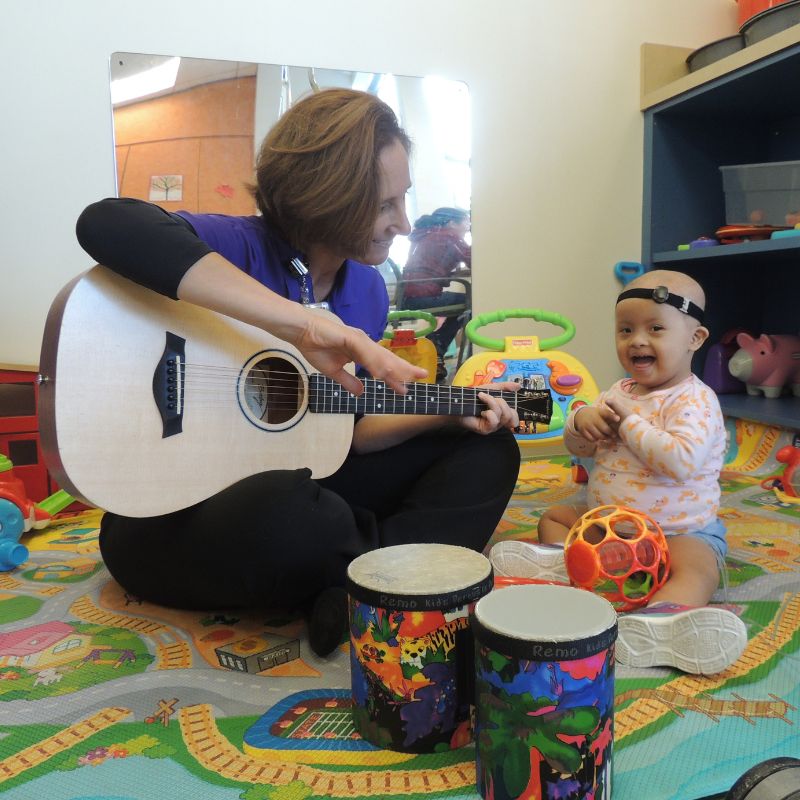The Music Therapy Program soothes hospitalized children and their families with the healing power of music. A music therapist facilitates bedside music therapy and group therapy sessions. An interactive state-of-the-art mobile music cart is part of the program, and has musical instruments, song writing software, a custom-built iPod docking station, a video screen and the power to help children by bringing the healing touch of music directly to children and their families.
In addition to improving a child's creativity, music cultivates and improves skill development in children that can benefit them for the rest of their lives—such as academic achievement, social and emotional development. Children who practice self-expression and creativity often become better communicators later in life.
Music therapy also assists patients to gain skills they may have lost during the process of their disease, illness or injury, such as speech and mobility. In addition, music therapy is used as a distraction for patients that are experiencing anxiety, pain or undergoing painful or scary procedures. The positive effects of music in the development of children are overwhelming, so it is no wonder music therapy is used to support healing at Miller Children's & Women's.
Hallway Music Program
Not only is it beneficial for children to play music, but listening to it promotes a relaxing and healing environment for patients and their family members. Research shows that listening to music lowers blood pressure, promotes a more positive state of mind, reduces stress and anxiety levels and can even help reduce pain through the release of endorphins.
For these reasons, the Music Therapy Program also includes a hallway music program, which helps lift patients’ spirits while they are in the hospital, and is especially beneficial during the holiday season when patients and families can feel a little down about hospitalization.
Semi-professional/professional musicians are stationed in general patient care areas for two hours, with at least one hour’s worth of repertoire. The “hallway musician” plays a musical instrument, such as guitar, violin, viola, cello, flute or clarinet (possibly with piano accompaniment) for patients, families, visitors, and the hospital care teams.

